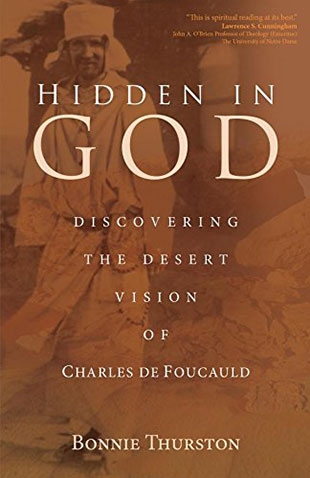New Testament scholar and poet Bonnie Thurston is a spiritual director and experienced retreat leader. She is a founding member and past president of the International Thomas Merton Society and the author or editor of eighteen theological books and five collections of poetry. In her introduction to this paperback, she reveals why she was attracted to the spiritual vision of the Trappist monk Charles de Foucauld (1858-1916): he lived his ideals; he served others but his life was hidden in Christ; and he challenged us to reframe our understandings of failure.
Thurston enters Foucauld's spirituality and tunnels into his understanding of three locations important in Jesus' life: Nazareth, the desert, and public life. But first, she briefly deals with this Catholic's education, his military career, and adventures as an explorer in North Africa, followed by his conversion, hermit life, and martyrdom.
Although Thurston makes it clear that the three locations each have their dangers and blessings, we shall focus on this austere monk's understanding of the desert. It is the place in our lives where we undergo spiritual struggles, suffer "aridity" in prayer, and surrender ourselves to dependence on the grace of God. With great elan, Thurston discusses aspects of Foucauld's desert spirituality contained in this passage:
"To receive the grace of God . . . you must go to a desert place and stay a while. There you can be emptied and unburdened of everything that does not pertain to God. There the house of our soul is swept clean to make room for God alone to dwell . . . We need this silence, this absence of every creature, so that God can build his hermitage within us."
It was his desert experiences of eating sand that enabled Foucauld to be a pioneer in his radical hospitality to Muslims. He truly believed that the desert could "bear fruit and blossom," but it does require patience and perseverance to wait and to be open.
